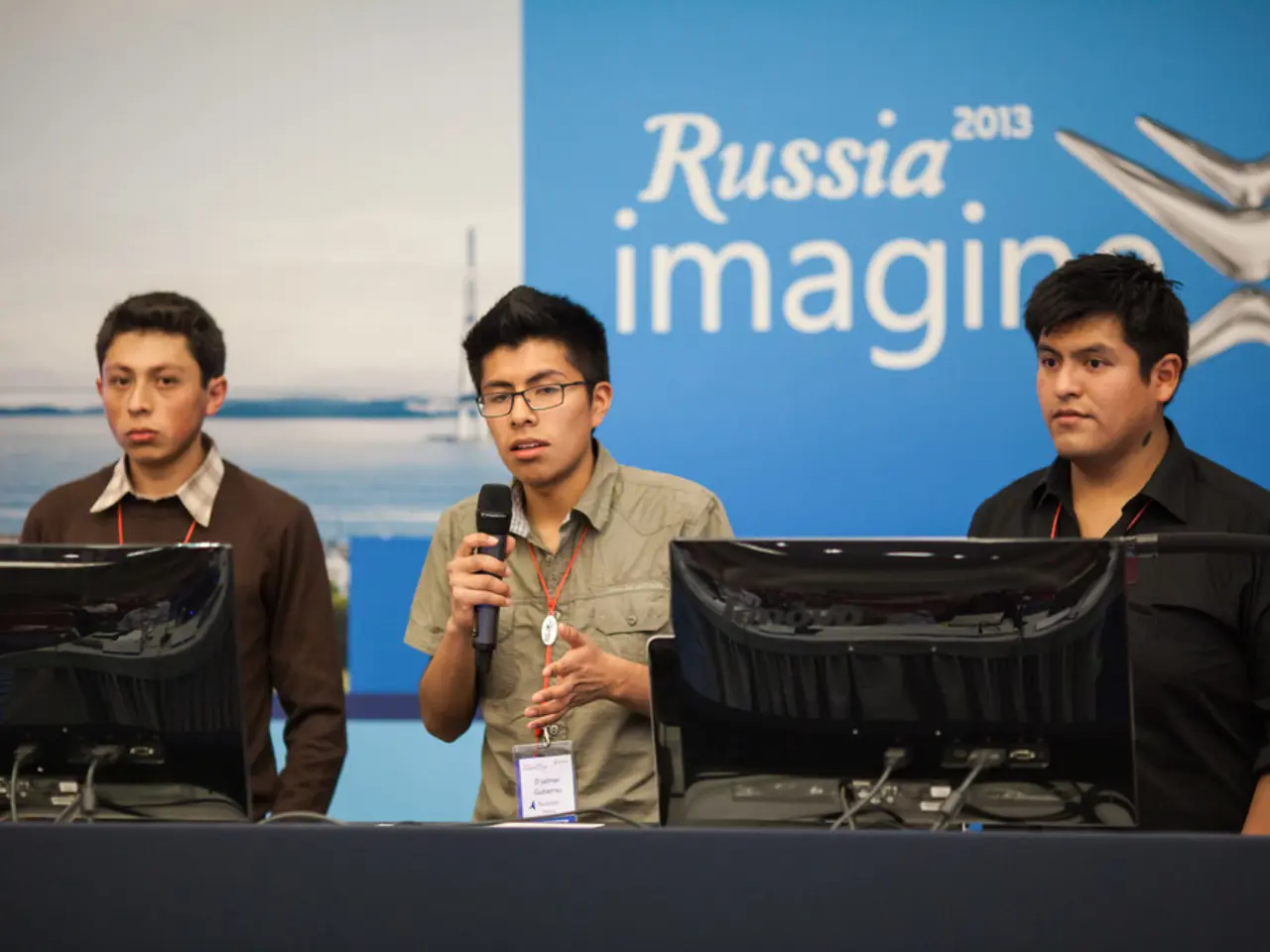American authorities receive a 15% slice of the chip sales revenue destined for China
The U.S. government's decision to impose a 15% cut on AI chip sales to China has significant implications for American companies like Nvidia and AMD, as well as for China's technological development.
Nvidia, the AI chip leader, was previously prevented from shipping its specially stripped-down H20 systems to China due to U.S. restrictions. However, these restrictions have been eased, allowing Nvidia to sell certain AI chips under strict export licenses. This arrangement comes with a financial burden, as Nvidia must share 15% of the revenue generated with the U.S. government. This decision has already caused a significant financial impact on Nvidia, with the company reporting a charge of over $5 billion in quarterly earnings due to sales restrictions.
For AMD, current estimates for sales to China range from $3 to $5 billion. The company, like Nvidia, will also be subject to the 15% revenue-sharing policy.
The implications for China’s technology development could be counterproductive. According to analysis from the Brookings Institution, overly aggressive bans or restrictions on AI chip exports to China might push China to accelerate its own development and deployment of indigenous AI chip technologies. This could potentially weaken American technological leadership in the long run.
The policy, while aimed at limiting China’s access to advanced U.S. AI chips, could therefore incentivize China to reduce dependency on U.S. technology, fostering a more self-reliant and competitive Chinese semiconductor industry.
In summary:
- The U.S. government's revenue-sharing policy allows some commercial engagement for U.S. firms but risks prompting China to enhance its semiconductor capabilities.
- This could complicate U.S. efforts to maintain global AI chip leadership.
- Nvidia and AMD are expected to see reduced revenue from China exports due to the 15% government cut.
- The policy may accelerate China's development of domestic AI chips and ecosystem, potentially undermining U.S. leadership.
- The U.S. restrictions are controversial, as they may lead to the development of new competitors for American companies.
This policy is part of a broader effort by the U.S. government, under both Trump and Biden, to restrict China's access to high-tech chips for AI. Nvidia's CEO, Jensen Huang, has lobbied the U.S. government, arguing that the U.S. restrictions will drive China to develop its own technologies and create new global competitors for American companies. However, the long-term implications of this policy remain uncertain.
Read also:
- Tesla is reportedly staying away from the solid-state battery trend, as suggested by indications from CATL and Panasonic.
- Online Advertising Consent Framework Faced with Significant Ramifications According to Belgian Data Protection Authority's Decision
- Server Hazards: Top 4 Pests Imperiling Your Data Center and Preventive Measures
- AI-led streamlining may intensify workforce reductions, assertions by BT's boss Kirkby in Financial Times piece.






